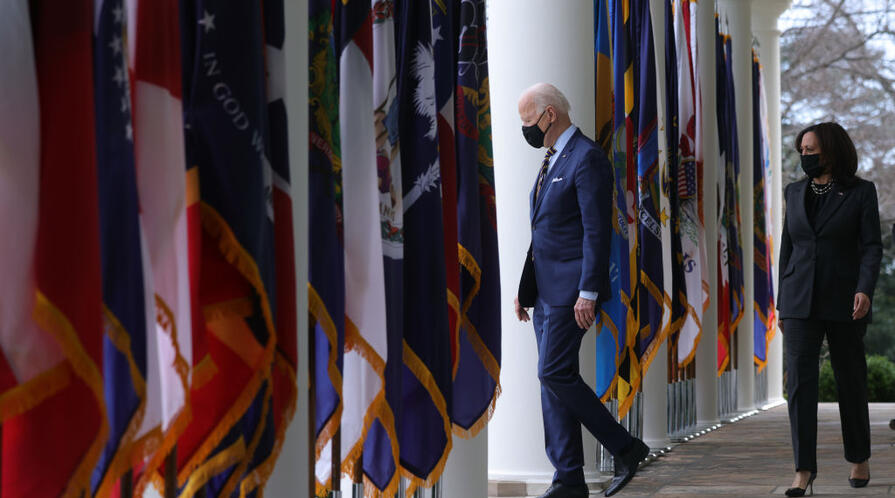Biden’s Foreign Policy: What We Can Expect for China, Russia and Iran
Biden’s Foreign Policy: What We Can Expect for China, Russia and Iran
On the World Class Podcast, experts discuss how the Biden Administration should navigate three of America’s most challenging bilateral relationships.

Since taking office more than 50 days ago, President Joe Biden has emphasized his desire to repair U.S. alliances and return the United States to a position of trusted leadership to help counter challenges around the world.
Michael McFaul, host of the World Class Podcast and director of the Freeman Spogli Institute for International Studies (FSI), described the relationships with China, Russia, and Iran as “the most challenging bilateral relationships that any administration faces.” During Biden’s early days in office, McFaul invited three FSI experts — Oriana Skylar Mastro, Steven Pifer, and Abbas Milani — to join World Class to share their analyses and recommendations about what we can expect from China, Russia and Iran during the next four years.
On the possibility of war between the U.S. and China:
“U.S. military planners and Chinese military planners are preparing for limited wars with each other. There is a real possibility of hot war.” -Oriana Skylar Mastro
On the future of Iranian leadership and U.S.-Iran relations:
“[Ayatollah] Khamenei has been Iran’s Supreme Leader for 33 years. There are two candidates vying for his succession: one is his son, Mojtaba, who is becoming increasingly assertive in the public domain. And there's a gentleman named Ebrahim Raisi, who's the head of the judiciary, and who is behaving as if he is the next anointed Supreme Leader. Khamenei is clearly sick — there is open talk about his disease. In terms of U.S.-Iran relations, if he does pass from the scene, that might be an opening [for discourse] because he has been singularly intransigent anti-American from the days he was a minor cleric, and throughout his entire 42-year career.” -Abbas Milani
On the possibility of negotiating with Russia on topics like cybersecurity and nuclear arms reductions:
“A lot of those issues are not going to lend themselves to an immediate negotiation, but if you have detailed periodic talks, there’s a chance to at least exchange concerns and better understand the other side.” -Steven Pifer
How partnerships and allies strengthen the U.S. competitive edge and deterrence efforts toward China:
“If China thinks they have to fight the United States to gain Taiwan back into the fold, they’ll do it. But if they think that they are going to be diplomatically isolated and have their relationships harmed for the long-term with not only the U.S., but with Japan, and Europe and Australia, they won’t do it.” -Oriana Skylar Mastro
WANT TO HEAR MORE OF THE WORLD CLASS PODCAST?
CLICK HERE TO LISTEN AND SUBSCRIBEOn sanctions as part of a policy toward Russia:
“You want to have sanctions fit in a policy that includes deterrence and containment, but you also want to have a dialogue, and sanctions can be used as a tool. Sanctions are not an end in themselves, they're a tool to achieve a policy goal.” -Steven Pifer
On the U.S. foreign policy connection between Iran, China and Russia:
“I think the fact that you had the two earlier podcast discussions on China and Russia and are now talking about Iran, underscores the fact that these three issues are interconnected. You cannot solve them unilaterally, and you need to understand them as a package of the problem. Iran very clearly is trying to use the China card, is very much trying to use the Russia card, to create a wedge with Europe and create a wedge between Europe and the United States, and to give itself a much easier chance to negotiate.” -Abbas Milani






